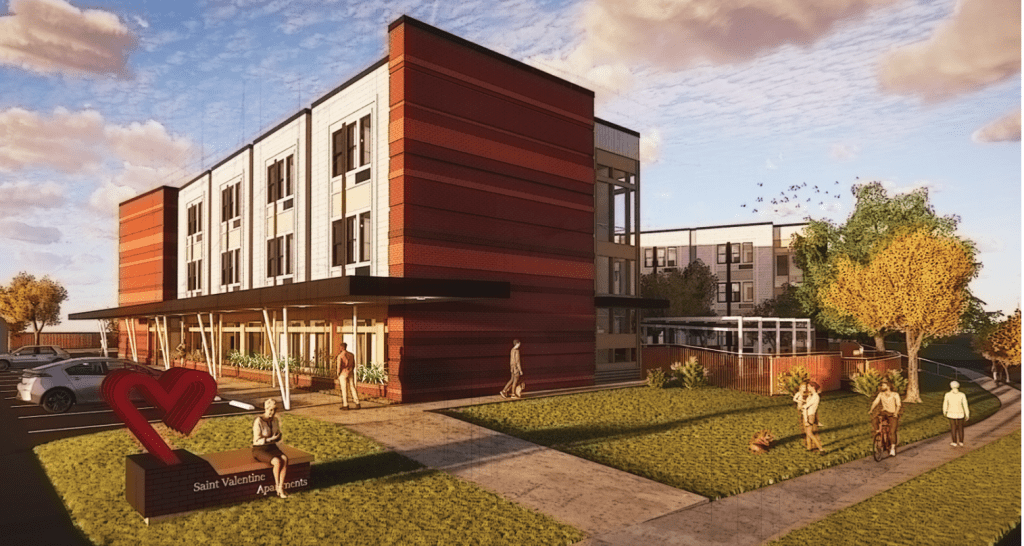
All hands on deck: Loveland’s multi-pronged approach to affordable housing
Like much of Colorado, the City of Loveland is facing a housing affordability crisis, especially for households at 70%-120% area median income (AMI). Combine housing prices with rising costs of utilities, food, and other necessities, and there is now a great need in Loveland for housing units at a variety of price points. A recent city survey confirmed that affordable housing is as much a top concern for residents as it is for city leaders. And addressing this challenge requires all hands on deck.
Kerri Burchett, the city’s principal planner, has led the way in one piece of the affordable housing puzzle. In 2019, the city implemented a Unified Development Code (UDC), combining the city’s zoning, subdivision, and annexation regulations into a unified code to promote a balance of land uses, with high-quality livable neighborhoods and a variety of housing types. The UDC replaces archaic code requirements that funneled every development through a process requiring multiple public hearings and neighborhood meetings.
The new code streamlines the development process so that the city can operate at a cadence that matches the market, giving developers more certainty and making them more amenable to exploring different housing product types. Though Loveland does not mandate affordable housing, city planning staff encourages and incentivizes it throughout the process, with full support from the planning commission and city council.
The UDC also allows for flexibility so that the city can further modernize the code as trends change. One recent code update opened the door for accessory dwelling units (ADUs), which qualify for certain capital expansion fee exemptions. Staff is also researching land trusts and working to implement further code amendments such as allowing density bonuses. Ultimately, Loveland envisions “complete neighborhoods” throughout the city, which will provide a variety of housing options to create a sustainable, walkable community with access to services.
The Loveland city council has been quite generous as they’ve worked with developers to produce affordable housing units. Since 2017, the city has waived 100% of building permit and development fees for developers, including Habitat for Humanity and the Loveland Housing Authority, who build housing for households under 60% AMI. Developers building housing for higher income households may still have a portion of the fees waived. Over the last four years, the Loveland city council has waived $4.1 million in fees for 345 units of multi-family housing and skilled nursing units for Loveland residents.
Certain development fee line items must be funded, and by waiving fees, the city council is in effect agreeing to cover these expenses themselves, demonstrating their commitment to affordable housing. They do this through the Community Housing Development Fund, which receives $450,000 a year from the General Fund. Developers often use these fee waivers to close the funding gap that may remain with a project even after taking advantage of low-income housing tax credits.
Addressing affordable housing challenges cannot be done by the city alone, which is where Alison Hade, Loveland’s community partnership administrator, steps in. Her office provides staff support to the Affordable Housing Commission, established in 2003. This commission of nine community members exists to better understand the city’s need for affordable housing, to develop strategies to increase affordable housing, and to make recommendations to the city council.
Hade works closely with outside agencies on affordable housing projects. For one project, Wilson Commons, the city is partnering with a builder to offer a pilot program in a neighborhood with for-sale housing. Fee waivers for the project will allow a portion of the homes to be sold to households at 70% AMI. The homes will be deed-restricted for 20 years.
Hade is also leading the city’s work on two projects that will support some of the community’s most vulnerable members, the unhoused.
The St. Valentine’s Apartments are being built by Archdiocesan Housing and will provide 54 units of permanent supportive housing, offering stability and access to services. The city donated land and granted the affordable housing designation, which allows for the waiving of building and development fees.
A second project, Greenspire, is still under discussion. Modeled after the Greenspire apartments in Longmont, this multi-family development will provide microunits for a remarkably low cost. Larimer County generously donated the land, and city staff is writing a proposal to use state ARPA funding for the project.
Throughout this work, Loveland city officials have relied on a few key practices to ensure progress: collaboration with a variety of partners; a willingness to evolve and amend the code as needed; and full transparency with the community.
The city’s residents value the character of their neighborhoods, and there can be resistance from residents who fear that new development will undermine that character. Burchett, the city planner, recognizes that neighborhood meetings and public hearings at planning commission and city council meetings are an opportunity to both listen to and educate the community about projects under consideration. And with each project the city completes, they have one more successful example to point to and assuage community concerns.



